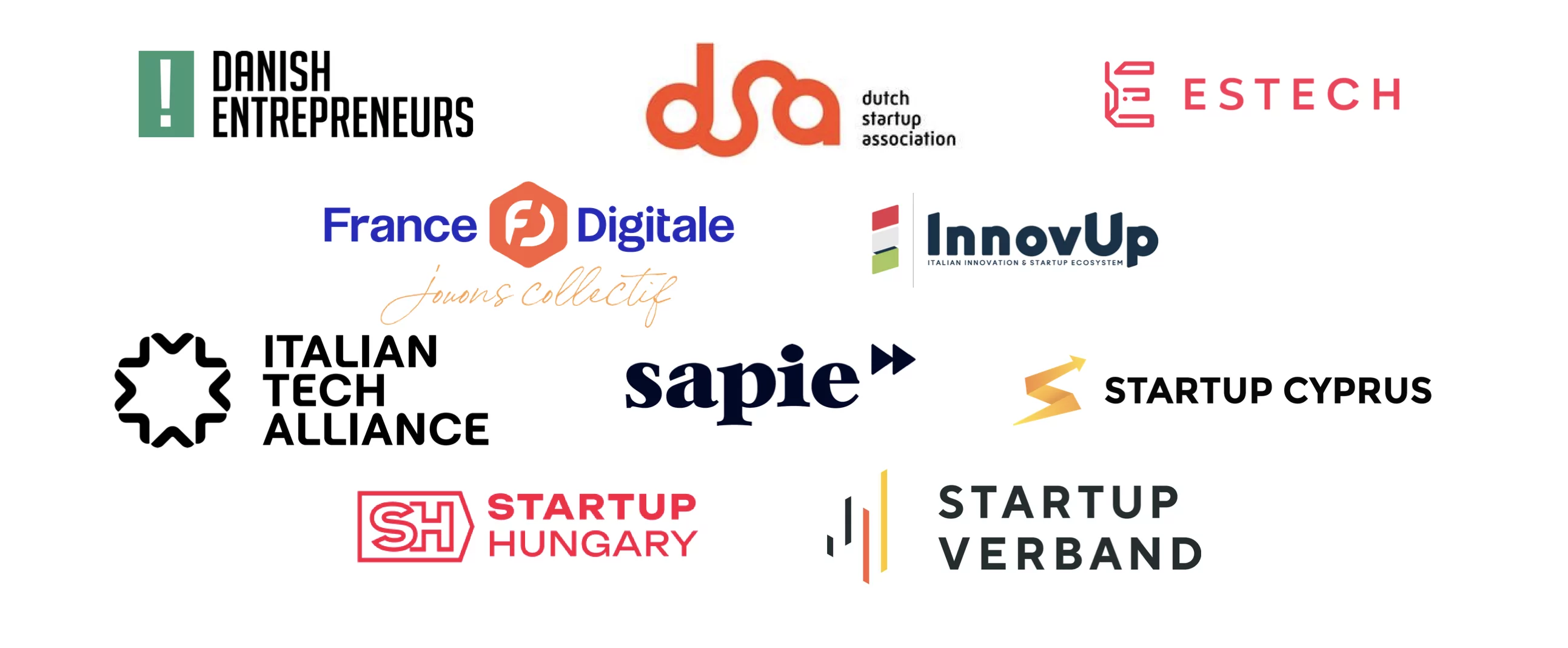The associations that bring together start-ups from different European countries, with Italy represented by the Italian Tech Alliance and Innovup and then the Danish Danish Entrepreneurs, the Dutch Dutch Startup Association, the Spanish Estech, France Digitale, the Slovak Sapie, Startup Cyprus, Startup Hungary and the German Startup Verband, have sent a letter to the President of the European Commission and the Commissioners-designate putting forward six proposals with the aim of consolidating the European start-up ecosystem and also asking for a meeting to discuss the issue in greater depth.
The proposals addressed to Ursula von der Leyen are designed to support the growth and consolidation of the European startup ecosystem, with the aim of ensuring that European startups can thrive and compete at European and global level. With the letter, the associations also made a formal request for a meeting with both President Ursula von der Leyen and Commissioner-designate for Startups, Research and Innovation, Ekaterina Zaharieva to discuss the content of the proposals.
“Italian Tech Alliance and the associations that have signed this initiative with us want to dialogue and discuss with the new Commission with the aim of exploring possible ways of collaboration between associations and institutions, in order to make Europe an increasingly attractive hub for start-ups and venture capital,” explains Francesco Cerruti, general manager of Italian Tech Alliance, in a note. While expressing our strong appreciation for the historic decision to appoint a Commissioner for Startups, Research and Innovation, we have proposed a number of measures that we consider strategic to further improve the innovation ecosystem in Europe, many of which have been already highlighted in the recent Draghi Report. Riteniamo che queste iniziative saranno determinanti per liberare il pieno potenziale delle startup e delle scaleup europee, contribuendo in modo significativo alla crescita economica e alla competitività globale dell’Europa”.
These, in detail, are the measures proposed by the coalition of associations that signed the letter of which Italian Tech Alliance is the promoter.
1. Innovative European Company Statute: it is proposed to introduce a new legal statute at European level for innovative start-ups, providing a unified digital identity recognised throughout the EU, facilitating the harmonisation of company law, insolvency rules and certain aspects of labour law and taxation (this first point is so fundamental that already previously European start-up associations, in addition to those mentioned above, many others such as Austrian Startups, Startup Portugal, Startup Greece, Startups.be, the Romanian Rotsa, the Bulgarian Besco, together with other organisations both local and European in scope, had produced a joint document emphasising the importance of a single company regime, the so-called 28th regime renamed EU Inc, which we have written about here )
2. Improve the funding ecosystem by developing a deeper pool of local capital in Europe to support start-ups from early stage to scale-up. This could be achieved by strengthening the mandate and budget of the European Investment Fund and the European Innovation Council, but also by creating the regulatory conditions and incentives to invest in European technology companies.
3. Overcoming bureaucratic barriers by implementing a new scheme for fair and transparent royalty sharing that would greatly facilitate the management of intellectual property rights (IPR) in universities and research institutes.
4. Promote the attractiveness of European stock markets for IPOs and companies by ensuring that as more and more European technology companies reach maturity stage, they have significant opportunities to list on European stock exchanges. To this end, the EU should increase the pool of capital on European stock exchanges by attracting more retail and institutional investors, reducing barriers to cross-border equity investment and increasing financial literacy across society.
5. Uniform IP protection through the adoption of the unitary patent in all EU Member States to reduce application costs and provide consistent protection for young companies. This harmonised framework would ease legal complexities and reduce administrative burdens for start-ups, allowing them to focus on innovation.
6. Evaluation of the impact of regulations through in-depth analyses of the impact of digital and other regulations, with a specific focus on their effects on small businesses. It is crucial that SMEs and start-ups are excluded from regulations that only apply to large companies.
ALL RIGHTS RESERVED ©
